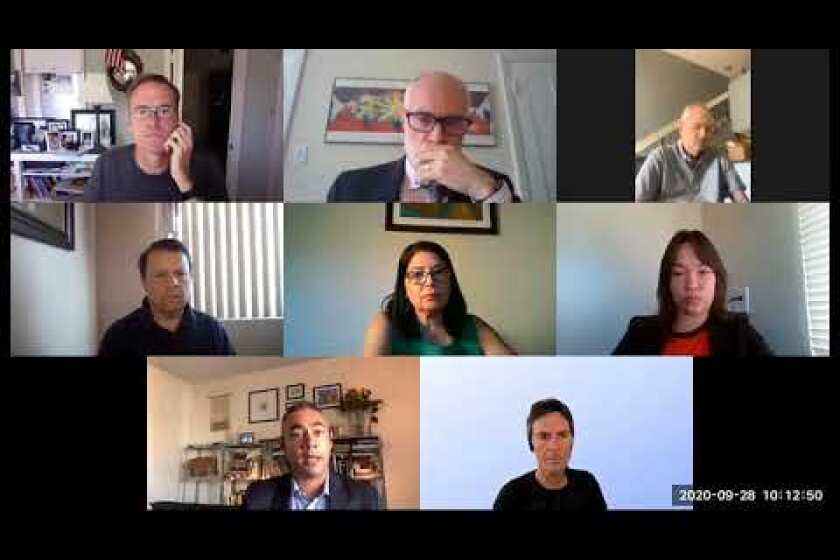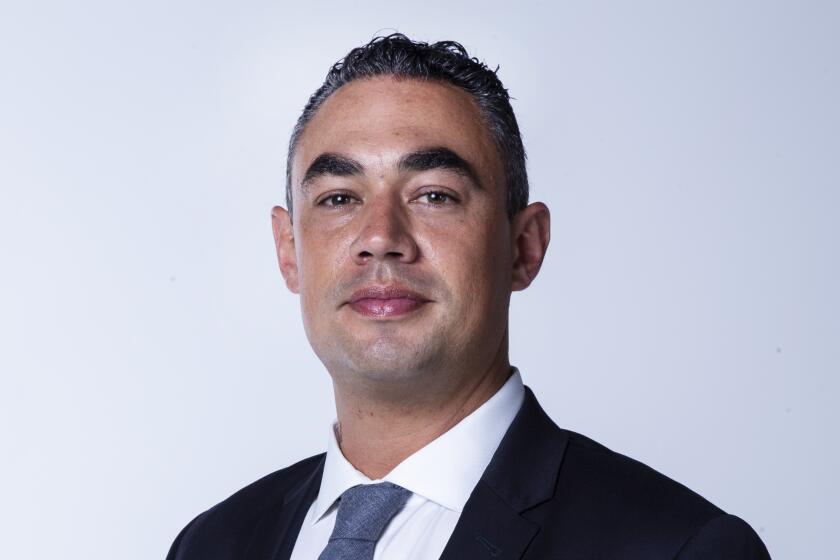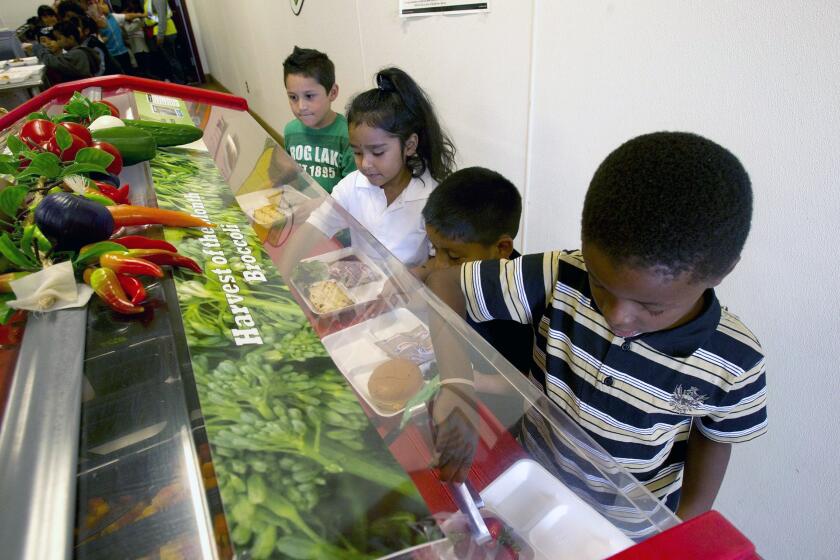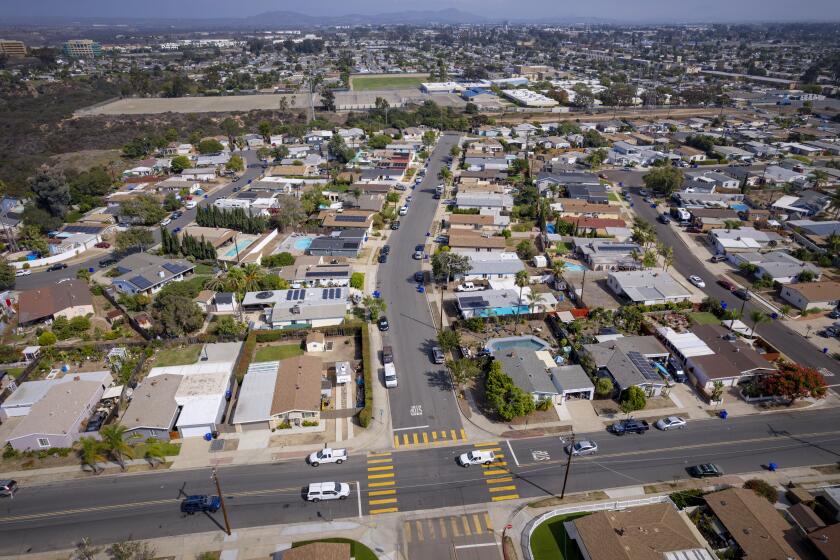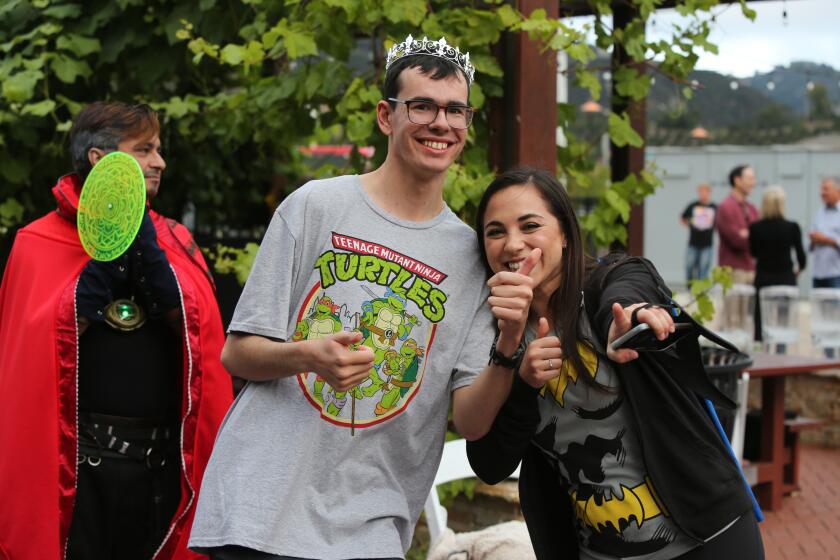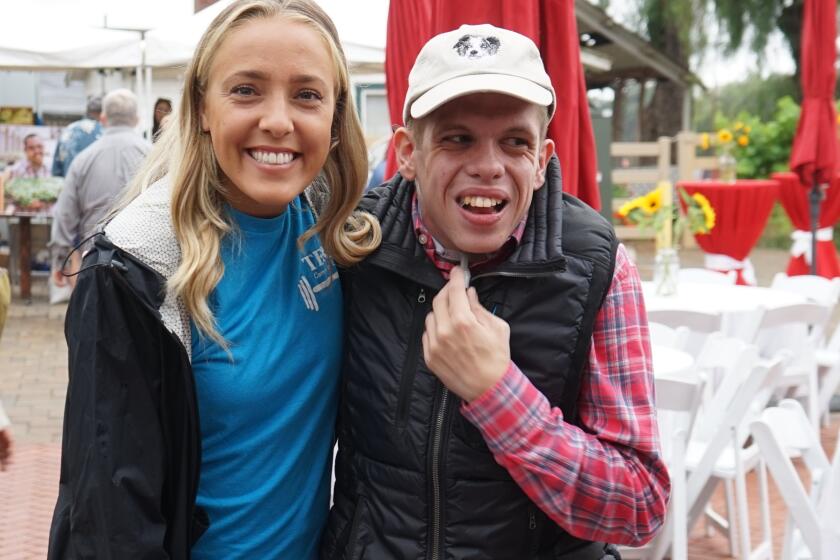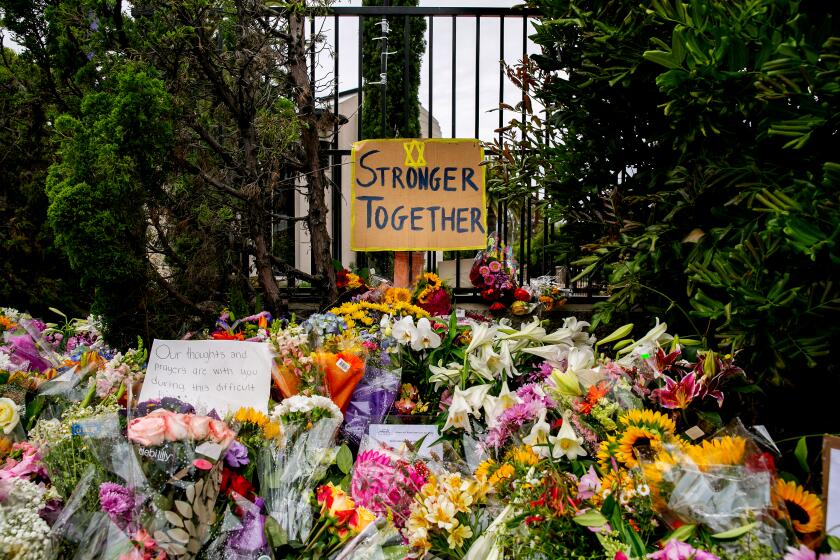2020 election: Q&A with Sean Elo-Rivera, candidate for San Diego City Council District 9
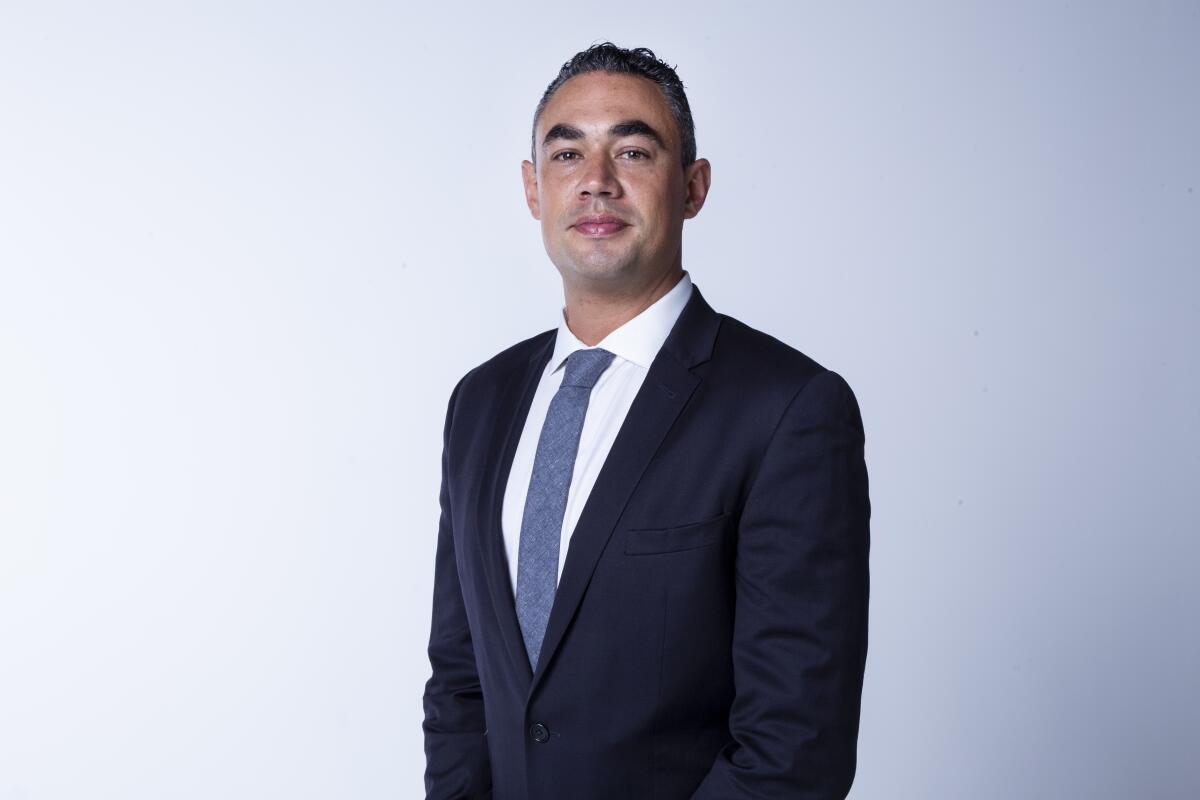
The San Diego Union-Tribune Editorial Board recently emailed a series of questions to Sean Elo-Rivera, a Democrat, who was running for election to San Diego City Council District 9 against Kelvin Barrios, also a Democrat, until Barrios suspended his campaign amid a campaign finance scandal. Here are the questions and Elo-Rivera’s responses.
Combined with flu season, the pandemic may pose even greater problems for San Diegans this winter. How will you balance public health and the economy if shutdowns are needed?
Above all, COVID-19 is a health disaster that has tragically ripped thousands of people from family and friends, and continues to inflict pain on hundreds of thousands more. As we’ve seen since the first days of the pandemic, the health and derivative effects of COVID-19 are compounding the already existing inequities and injustices in San Diego.
The COVID-19 pandemic has been devastating to small businesses and small nonprofits, too. It’s not just impacting the sources of revenue for businesses and organizations; it is jeopardizing big dreams and incredibly hard work. For many, those dreams are being harmed by the tsunami-like ripple effect of this public health crisis.
While we can hope for the best, we must plan for the worst and be ready if there are more rounds of strict lockdowns. Businesses should not be unnecessarily left to wait for government action when the events of the past months have already shown us much of what is needed: Automatic triggers for business support, such as grants and loans, if and when lockdowns resume, and automatic triggers for policy adaptations such as permitting outdoor dining, if and when indoor dining is prohibited.
However, it is crucial that these decisions that shape people’s lives and livelihoods center the needs of underserved communities, communities which are at higher risk of having underlying health conditions and more precarious safety nets. Together, we can emerge from this public health crisis stronger than ever.

How satisfied are you with the progress the city has made on its Climate Action Plan and how will you ensure its legally binding goals are met?
At this moment, San Diego has fallen behind when it comes to hitting our Climate Action Plan goals. Moreover, we are in the midst of a global climate crisis — there is no time to wait to take action. From that perspective, I am not satisfied with the progress made.
Climate Action Campaign’s annual scorecard finds that the city of San Diego is not doing enough to implement its Climate Action Plan goals. To address these deficits, I support the ideas and goals of community-based organizations and labor unions in developing a San Diego Green New Deal, which would be a model to fight climate change and economic inequality within our own community, change infrastructure and industry to more environmentally friendly standards, and lay out a regional approach to reducing greenhouse gases. The city should adopt these ideas, and I will continue to champion them.
San Diego must get serious about meeting our goals by allocating the resources necessary to meet those goals. In addition, policy and funding decisions must be made in pursuit of equity, with a particular emphasis on racial equity and justice. As council member, I will focus on the public input process by demanding that equity permeates the process behind the Climate Action Plan. Equitable participation in the planning process increases the likelihood of an equitable plan.
Neighborhoods south of Interstate 8, including communities of color, don’t always get the funding or consideration wealthier communities to the north get. How will you address that?
The disparities between the neighborhoods north and south of Interstate 8 are an apt metaphor for life in America. Despite incredible resilience, communities of color, especially Black San Diegans, are stifled by systemic racism resulting in massive disparities in health, economic opportunity and education. These disparities are not happenstance. They are the obvious consequence of systemic and institutional racism that led to underinvestment in San Diego’s Black, Indigenous, Latino and Southeast Asian and Pacific Islander communities. In other words, the communities most often found south of Interstate 8.
If elected, we will take three immediate actions to address the inequities mentioned above.
Fight for Reparations: We will engage San Diego’s Black community in an effort to identify transgressions and provide reparations. We will follow suit with other communities harmed by systemic and institutional racism.
Fully fund the Office of Race and Equity: Earlier this year, the City approved Council member Monica Montgomery Steppe’s proposal to create an Office of Race and Equity. The office will achieve its objectives only if properly funded on an ongoing basis. We will do our part to make sure that happens.
Pursue Racial Equity in All Decisions: I commit to consistently, intentionally and transparently centering racial equity in all decisions, policies, programs and budgets. However, no single council member will single-handedly solve the problems of decades of neglectful policies and practices. I am committed to doing the work to ensure this effort is a collective one that includes the full council, the mayor and all city staff.
How, specifically, will you address the high cost of housing in San Diego?
Throughout District 9, many families struggle to attain the quality affordable housing they deserve. We must act, and I am not willing to wait any longer to see meaningful action.
We must build sufficient housing at all price points to close the current supply-demand gap and keep pace with the projected increase in demand. Aggressive efforts must be made to do away with unnecessary delays in the approval process for projects throughout the city. Additionally, I have been encouraged to see the city’s recent move to acquire hotels and motels and will champion more of this with an eye toward eventually converting such properties into affordable homes for seniors and young professionals who may be interested in living in smaller units as a way of reducing costs.
We must increase density and permit homes that are naturally more affordable, especially in our historically exclusive communities in the northern parts of our city. Doing so will improve affordability, take pressure off of our vulnerable communities at risk of gentrification, and allow young workers to afford to live in the communities they grew up in.
Equally important, we must protect existing affordable housing, keeping communities intact and households, including multi-generational families, in their communities. We must also create a flexible spending pool for emergency rent subsidies, protect against unreasonable rent increases, and institute rental payment reporting so renters earn and build credit without accruing debt thus increasing the opportunity to qualify to purchase a home.
What will homelessness in San Diego look like at the end of your four-year term?
Reducing homelessness is one of my top priorities and one of my main motivations for wanting to serve on the City Council. It is an issue of personal passion to me as I have experienced homelessness and have seen my family struggle to keep a roof over our heads. As a member of the Regional Task Force on the Homeless, I am familiar with the various programs and services that were being utilized before the COVID-19 pandemic and that are in effect today.
The first step in reducing homelessness is minimizing the number of people who end up without a home through establishing a consistent pool of emergency rental assistance, developing public works programs for people who have lost jobs, and focusing measures for communities most likely to become unhoused like transitional age foster youth.
We must better coordinate with the Regional Task Force on the Homeless to leverage regional efforts without unnecessary and inefficient duplication, and we must continue and expand acquisition and use of motels, hotels and other spaces for emergency temporary housing.
Ultimately, we must provide supportive housing for our neighbors experiencing homelessness. That is why I am a strong supporter of Measure A, the “Homes for San Diegans” measure that, if passed this election, would provide funding to build thousands of homes for low income families, veterans, and seniors.
Will — and how will — you accept and evaluate Mayor Kevin Faulconer’s proposal to redevelop the sports arena site?
The redevelopment of the sports arena site will be one of the next City Council and mayor’s first opportunities to rebuild the community’s trust in the city government’s commitment to and capacity for getting the best deal possible for the people. With this in mind, it is critical that we get the decision right.
My decision with respect to Mayor Faulconer’s proposal will be based on a thorough and critical analysis that ensures the public can be confident that every component of the proposal is in the best interest of the public.
Watch our video interview with the candidates in this race:
San Diego City Council District 9: Democrat Sean Elo-Rivera
Read our primary interview:
Sean Elo, a candidate for San Diego City Council District 9, met with the San Diego Union-Tribune Editorial Board ahead of the 2020 primary election
Get Weekend Opinion on Sundays and Reader Opinion on Mondays
Editorials, commentary and more delivered Sunday morning, and Reader Reaction on Mondays.
You may occasionally receive promotional content from the San Diego Union-Tribune.
